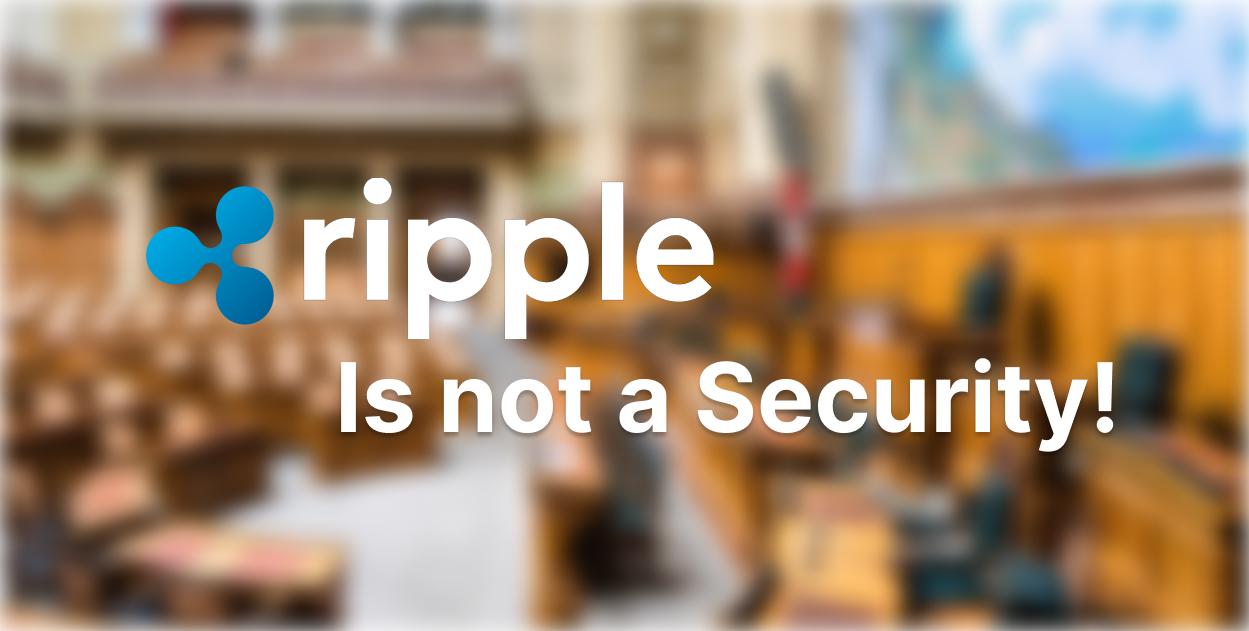SEC & Ripple Clash - A Groundbreaking Verdict That's Reshaping Crypto Regulation

SEC vs Ripple lawsuit comes to an end - XRP is officially not a security in the eyes of the US government. Discover what this verdict means for XRP and the overall crypto regulation.
As the smoke clears from one of the most closely-watched courtrooms in the financial world, the dust begins to settle on a legal battle that has implications far beyond the courtroom walls.
The recent ruling in the high-stakes dispute between the SEC and Ripple Labs brings new clarity to cryptocurrency regulation and paves the way for future market trends. This article will unravel the significance of this landmark decision and its profound implications for the world of digital finance.
TL;DR:
- Ripple has scored a partial victory over the court. For individual investors, XRP will officially not be recognized as a security by the SEC.
- SEC scores a partial win too - XRP is now declared a security for institutional sales.
- The ruling marks an important step in the ongoing battle of crypto against regulators. It is the first officially recognized win for the crypto market.
- XRP's price has shown a very positive sentiment by growing almost 80% within 24 hours of the verdict. The wider crypto market is also reacting with green numbers.
The High-stakes Dispute of SEC and Ripple
In a showdown that has attracted the attention of the global finance and technology sectors, the U.S. Securities and Exchange Commission (SEC) finished an ongoing legal battle against Ripple Labs.
Back in December 2020, the SEC filed a lawsuit against Ripple and its key executives, including CEO Brad Garlinghouse and co-founder Chris Larsen. The basis of the SEC's complaint revolved around the categorization of Ripple's native digital token, XRP. According to the SEC, the company had engaged in an unregistered securities offering amounting to $1.3 billion by selling XRP, which the regulatory body classified as a security.
The lawsuit has since taken center stage in the discourse around cryptocurrency regulation in the United States. The fundamental point of contention is the definition and classification of digital assets like XRP. Are they securities, akin to traditional investment contracts, or a new breed of digital assets that don't fall under the existing regulatory framework?
XRP Not a Security
In a groundbreaking development, Judge Analisa Torres ruled in favor of Ripple Labs for a segment of their XRP sales. Specifically, she declared that Ripple's programmatic sales of XRP on public cryptocurrency exchanges were not offers of securities under the existing legal definitions.
The rationale behind this ruling was that purchasers engaged in these transactions didn't have a reasonable expectation of profits derived directly from Ripple's efforts. Simply put, the buyers of XRP in these programmatic sales were unaware if their money was going to Ripple or any other seller of XRP on the digital asset exchanges. The critical factor here was the absence of the "efforts of others," a key criterion of the Howey Test, which is often used to determine if an asset is a security.
Partial Win for the SEC
However, the legal victory for Ripple Labs was not absolute. The SEC, too, emerged from the courtroom with a feather in its cap.
Judge Torres found that Ripple's sales of XRP to institutional investors and sophisticated buyers, totaling $728.9 million, did indeed constitute unregistered sales of securities. This aspect of the ruling concluded that XRP sales, under certain circumstances and to certain buyers, could be classified as securities. The implication of this conclusion is that these types of transactions should have been registered and subjected to the same regulatory standards as traditional securities.
Why is this Important?
This landmark decision in the SEC vs Ripple saga signifies a turning point in the ongoing dialogue around cryptocurrency regulation. The verdict illustrates how existing laws, including the Securities Act of 1933, are interpreted and applied to digital currencies, a new and dynamic class of assets.
The case also has profound implications for other cryptocurrencies and blockchain projects, potentially influencing how they structure their token sales, communicate with investors, and navigate the regulatory landscape.
Would you like to see what the crypto regulatory situation is like in Europe? Read our overall guide and MiCa regulation explained simply.
The First Win for Crypto
The Ripple verdict is seen as a crucial milestone in the crypto industry's ongoing standoff with regulatory bodies like the SEC. With the judge ruling in favor of Ripple Labs for a part of its XRP sales, the crypto industry perceives it as a much-needed win in their campaign for more favorable and clearer regulation.
This ruling emphasizes the crypto industry's argument that not all digital tokens can be painted with the same brush and should not be subjected to the same regulatory scrutiny. It paves the way for new regulatory approaches that are tailored to the unique attributes of different digital tokens and the contexts in which they are issued and sold.
Positive Sentiment for XRP and Wider Crypto Market
The ripple effects (pun intended) of the Ripple vs SEC court decision were immediately felt within the crypto market. Upon the announcement of the verdict, the price of XRP surged over 25%, leaping from $0.45 to $0.61 in mere minutes. Within 24 hours of the verdict, XRP price continued to rise all the way to $0.86. This rapid appreciation showcased the relief and optimism within the XRP community and signaled a newfound confidence in Ripple's future.
Moreover, this ruling has injected a new sense of optimism and buoyancy into the crypto market. Crypto industry players hope that this decision could set a precedent for future regulatory actions, leading to more favorable outcomes for other digital currencies. As a result, the market sentiment for other major cryptocurrencies has also improved, reflecting in their positive price actions.


